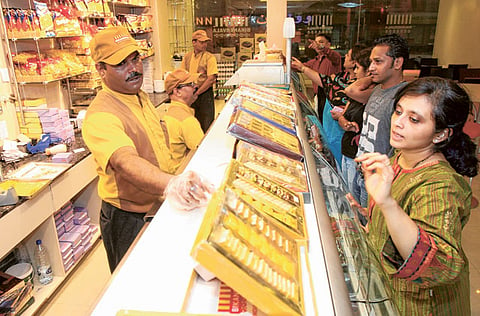Diwali: A traditional burst of flavours
Exchanging sweets and savouries is an age-old tradition in Diwali celebrations

Sweets are to Diwali as a decorated tree is to Christmas. The age-old concept of "mooh-mitha karana" (sweetening the palate) to offer festive greetings can never die down, despite all the new-fangled health fads.
And for this reason, sweet shops work doubly hard to meet demands. Pankaj Agarwal, director, Bikanervala Restaurant & Sweets in Dubai, tells us monthly production increases 100 per cent in the few days leading up to Diwali.
"We start preparing to meet Diwali demands, a week or ten days before the occasion. All hands have to be available, no holidays are sanctioned and workers are given incentives for the hard work they do."
We visited the sweet factory to check out the preparations. While on one side were huge woks full of fried dal (lentils), on the other were mechanised vats crushing and roasting cashews. But we could hardly find finished sweets.
"We only finish the items in the two-three days before they go on sale to retain the freshness," Agarwal says. "We'll prepare the various dals for halwa and burfis and roast the dry fruits but the ingredients are finally brought together later."
So what does the public demand?
"Last year our fig and dates burfis with nuts were very popular," he says.
So you agree people are looking at healthier options to sweets?
"People live with the misconception that Indian sweets are unhealthy," Agarwal says.
"Chocolates are just as fattening as these. The only reason they sell more is due to advertising. You find celebrities endorsing chocolates. Indian sweets lack that glamour though they are made from the most natural ingredients. We use milk — everyone knows its nutritional values — and chhena, or cottage cheese, which is rich in protein, and lentils and nuts. Yes, sugar and fat is there, but then again, would anything be tasty without them? Chocolates wouldn't sell either."

